For Every Application
Peplink’s load balancing algorithms can help you easily fine-tune how traffic is distributed across connections, giving you SD-WAN-like flexibility and resilience without having to form a VPN. Each deployment has a unique setup, and Peplink’s enterprise grade load balancing software can fulfill all of your special requirements. Define your own rule with the following algorithms and you can sit back and enjoy the high performance routing that Peplink brings to you.

Weighted Balance
Assign more traffic to a faster link or less traffic to a connection with a bandwidth cap. Set a weight on the scale for each connection and outgoing traffic will be proportionally distributed according to the specified ratio.
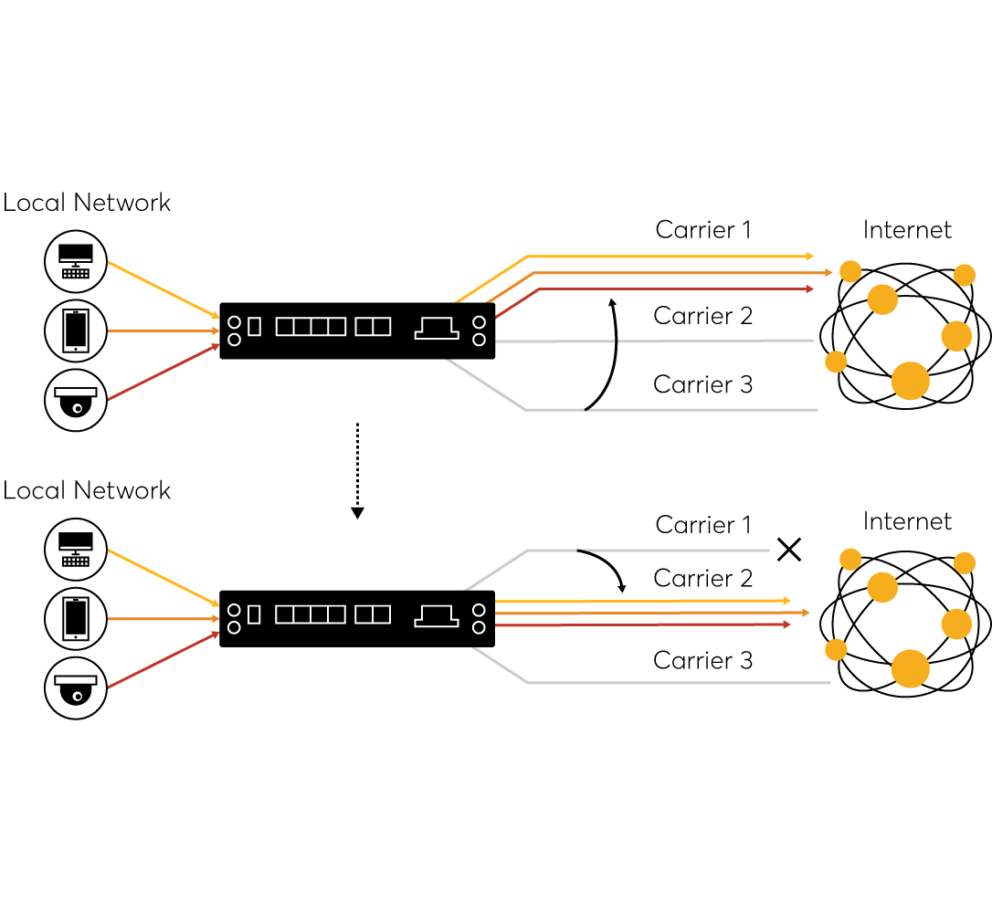
Priority
Route traffic to your preferred link as long as it’s available. Arrange the connection priority order, and traffic will be routed through the healthy link that has the highest priority in the list. Lower priority links will only be used if the current connection fails.
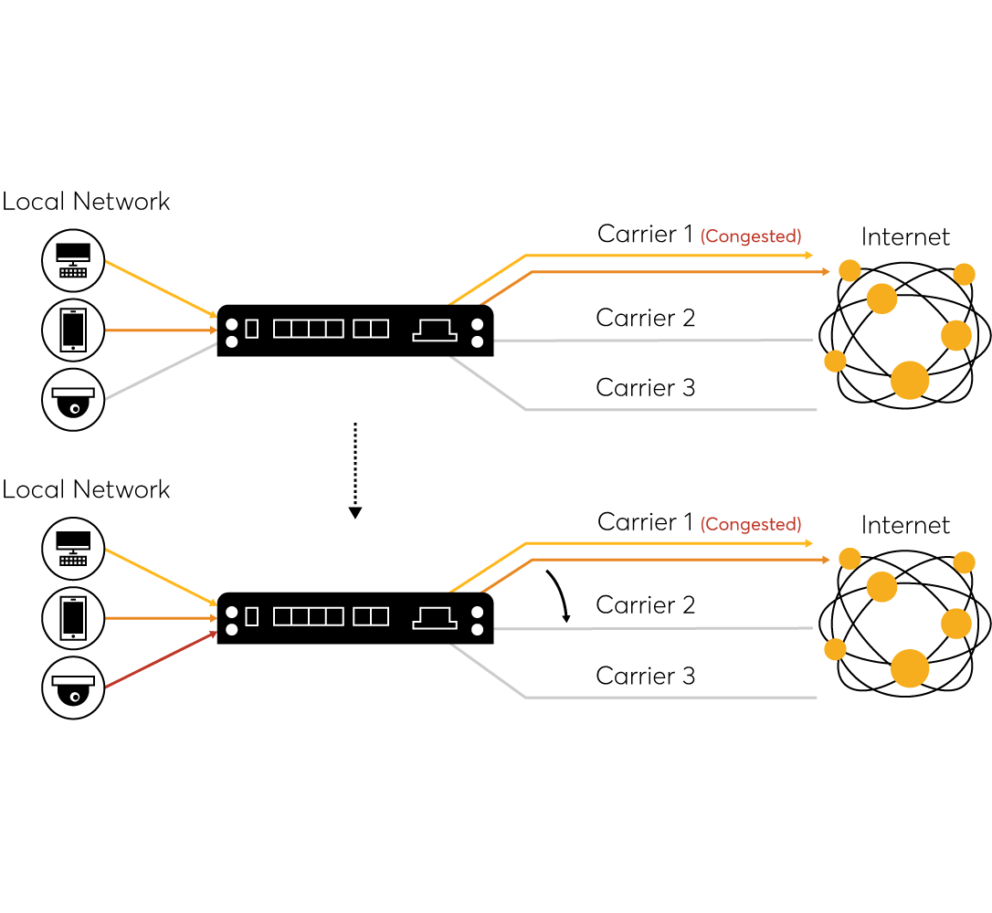
Overflow
Prevent traffic flow from slowing down when the connection runs out of available bandwidth. Drag and drop to arrange the connection overflow order and the highest priority link will route traffic as long as it has not been congested. Once it saturates, the lower priority links will start routing traffic.

Persistence
Eliminate session termination issue for HTTPS, E-banking, and other secure websites.Specify a traffic type and it will be routed through the same connection persistently based on its source and/or destination IP addresses. Traffic will keep routing on the same connection until the session ends.
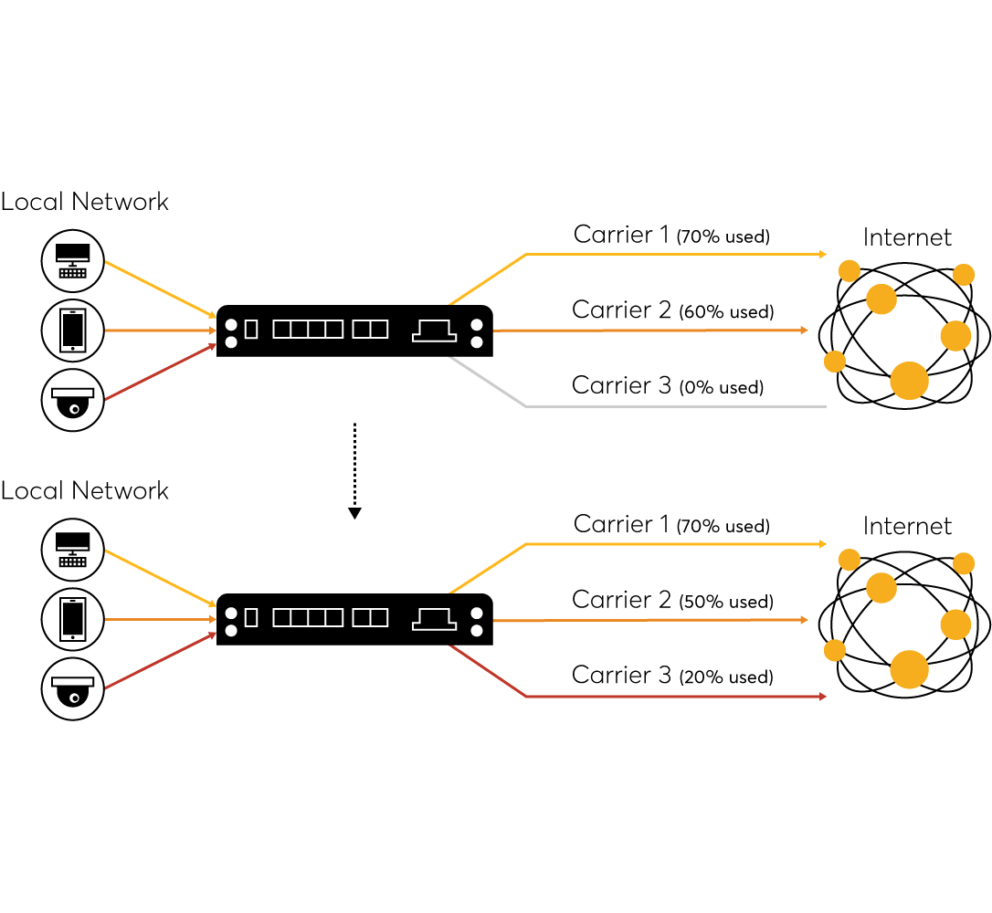
Least Used
Help you choose the better connection with more free bandwidth. Traffic will be directed to the link with the most available bandwidth among the selected connections.
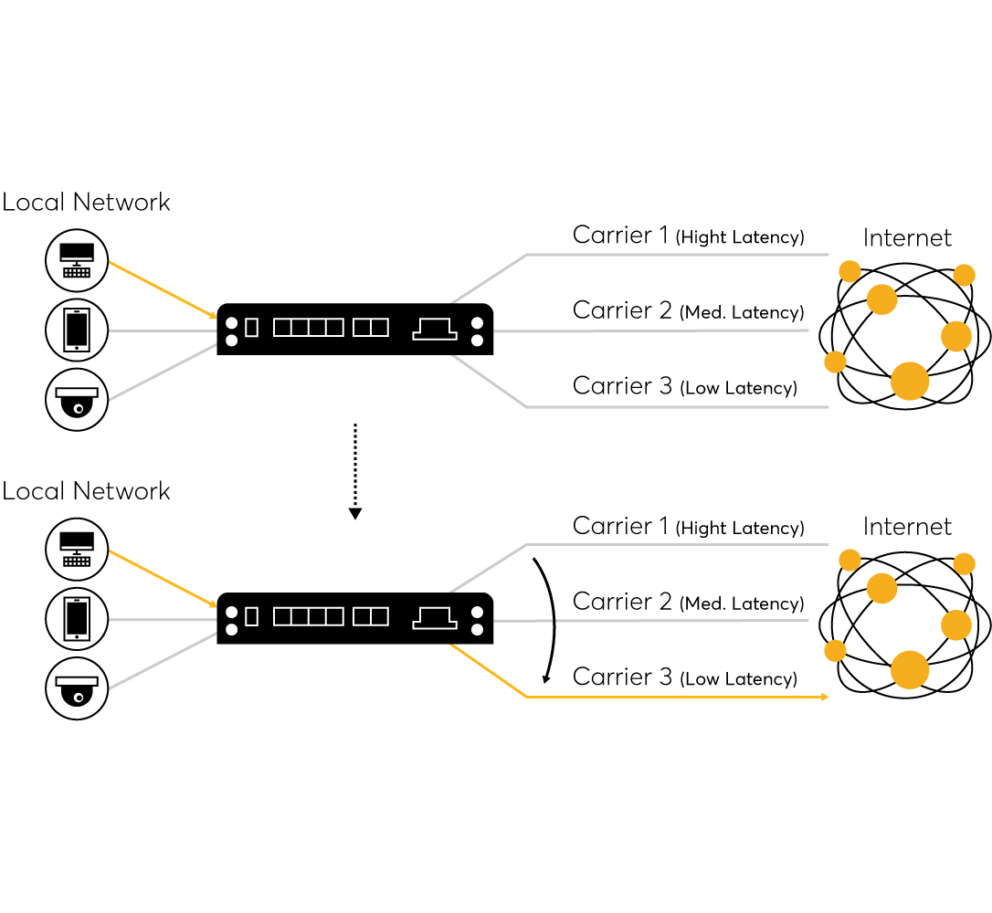
Lowest Latency
Use the fastest connection based on the connection latency time of the second or third hops. At pre-defined time intervals, test data is sent to all healthy connections. All new traffic will be assigned to the link with the lowest latency time among the selected connections.

Enforced
Restrict outbound traffic to a particular connection.Select a connection and the specified traffic type will be routed through it at all times, whether the link is up or down.For scenarios like accessing a server that only allows users from a specific IP.
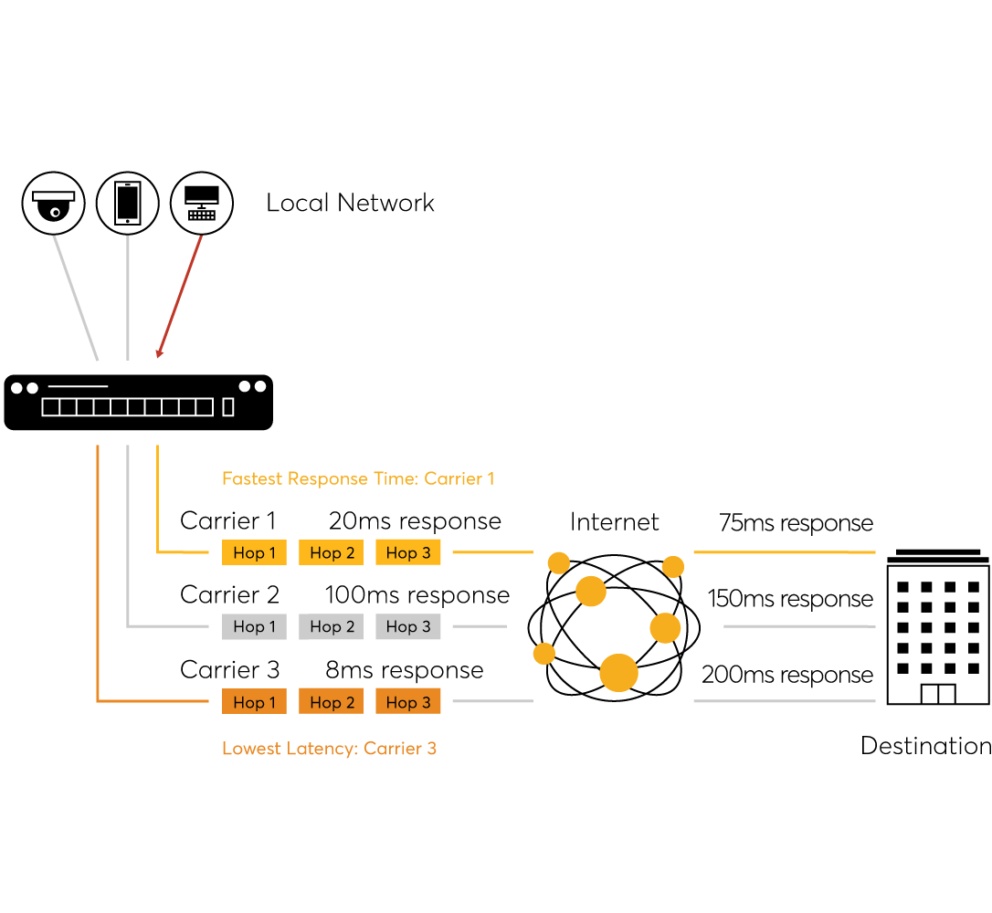
Fastest Response Time
Use the fastest connection based on session response from the destination.At the start of each session, traffic is duplicated and sent to all healthy connections.The connection with the earliest response from the destination will be used to send all further traffic from that session.